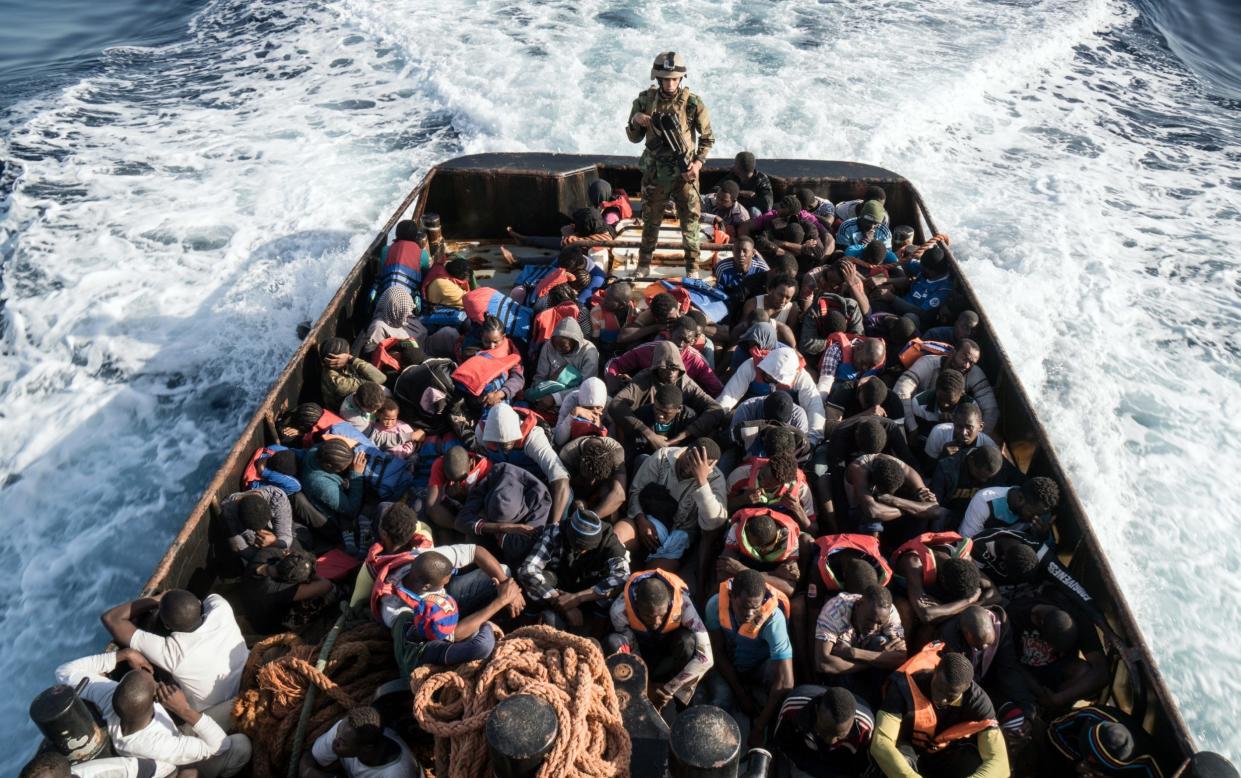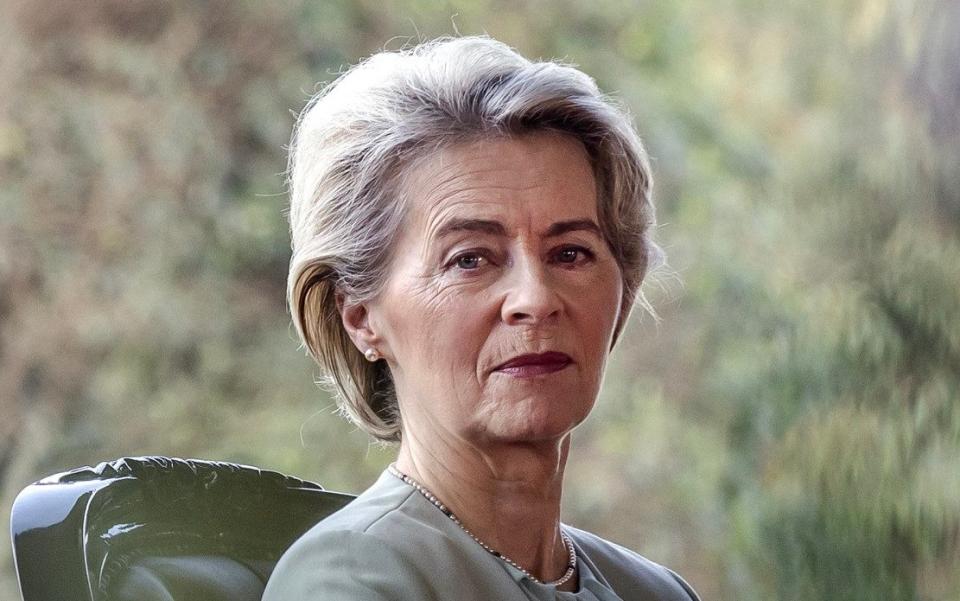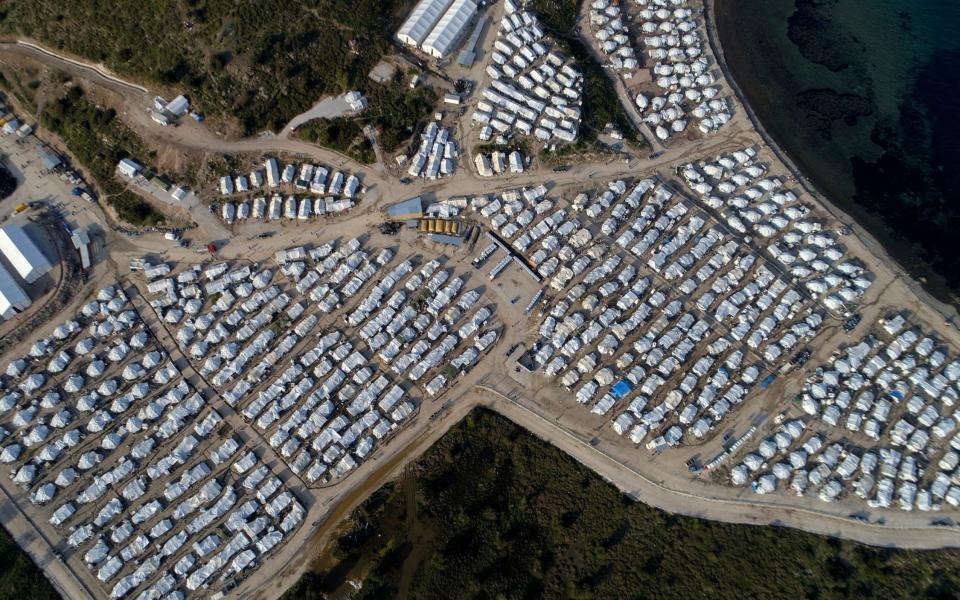EU strikes deal to tighten immigration controls

- Oops!Something went wrong.Please try again later.
The European Union has struck a deal to tighten immigration controls, making it easier to deport failed asylum seekers and hold families in detention centres on the bloc’s external borders.
The agreement, reached after three years of negotiations, promises to overhaul how the bloc processes migrants and paves the way for rapid assessments at borders.
Those deemed to have the lowest chance of being granted the right to stay, including families with women and children, will be processed at facilities near the bloc’s external frontiers within three months.
Before that, authorities will have just seven days to determine the status of any asylum seekers.
Those from the likes of Turkey, India and Tunisia, who have a less than 20 per cent acceptance level, are the most likely to be labelled as economic migrants and held at the border before being returned home.
Member states away from the major points of arrival, such as Italy and Greece, will be expected to house asylum seekers to ease the burden on southern Europe.
European capitals that refuse to take in migrants can instead opt to pay financial compensation to other EU countries hosting more asylum seekers or contribute to the cost of programmes in third countries aimed at reducing migratory flows.
But it offers no change to the bloc’s Dublin regulation, which dictates that asylum seekers should seek protection in the first EU country they enter, which is most often Greece or Italy.

The deal came after two days and nights of fraught negotiations between the EU’s Parliament, Commission and Council.
The overhaul was first proposed in 2016, when more than one million migrants arrived in Europe, many escaping wars in Syria, Iraq and Afghanistan.
It also comes six months before Europe-wide elections, with polls displaying a surge in support for anti-immigration parties.
‘The most important deal’
During the first 11 months of 2023, more than 355,000 illegal migrants entered the bloc, the highest number since 2016.
Roberta Metsola, the European Parliament’s president, celebrated the reforms as “probably the most important legislative deal” of the current term.
Ursula von der Leyen, the European Commission president, added: “It means that Europeans will decide who comes to the EU and who can stay, not the smugglers. It means protecting those in need.”

The senior Eurocrat insisted the deal would protect the bloc “when hostile countries deliberately attempt to destabilise the EU”, echoing a similar recent warning from Rishi Sunak, the Prime Minister.
It is hoped the reforms will give EU-friendly governments more control over their borders.
Negotiators conceded they had to give ground to demands from member states to make the measures tougher in order to reach a deal.
“Getting a compromise, getting a deal, also means giving up on some points,” said Fabienne Keller, the French MEP who led the talks.
‘Surge of suffering’
But human rights campaigners have argued the reforms go too far and diminish access to asylum within the bloc, undermining fundamental rights.
Among the measures in the firing line are plans to force asylum seekers as young as six years old to provide biometric data, and the allocation of more EU money to reinforce borders with drones and cameras instead of rescue missions.
“The pact will almost certainly cause more people to be put into de facto detention at EU borders,” said Eve Geddie, the head of Amnesty International’s EU office.
“Its likely outcome is a surge in suffering on every step of a person’s journey to seek asylum in the EU.”
Harlem Desir, of the International Rescue Committee, added: “Europe is now at a crossroads; it can either move ahead with the policies of deterrence and exclusion, which will simply drive more people onto dangerous journeys, or choose to lead by example.”

There are also significant question marks over whether European states will actually be able to more easily deport failed asylum seekers under the new deal.
Even now, the bloc lacks returns deals with many countries and has failed to convince Asian and African states to accept citizens back.
Before the agreement can fully come into force, it must first be approved in a vote by both the European Council and Parliament.
However, the bloc’s Migration Pact is not expected to be fully operational until 2026, after the European elections next year.
After the deal was announced, the Commission said it had agreed a €150 million (£130 million) programme to support Tunisia’s government, which is being seen as an effort to convince the North African state to curb migration flows to Europe.
Officials hope that by helping to stabilise the country’s economy, it will encourage more would-be asylum seekers to remain there for work instead of illegally travelling to Europe.

